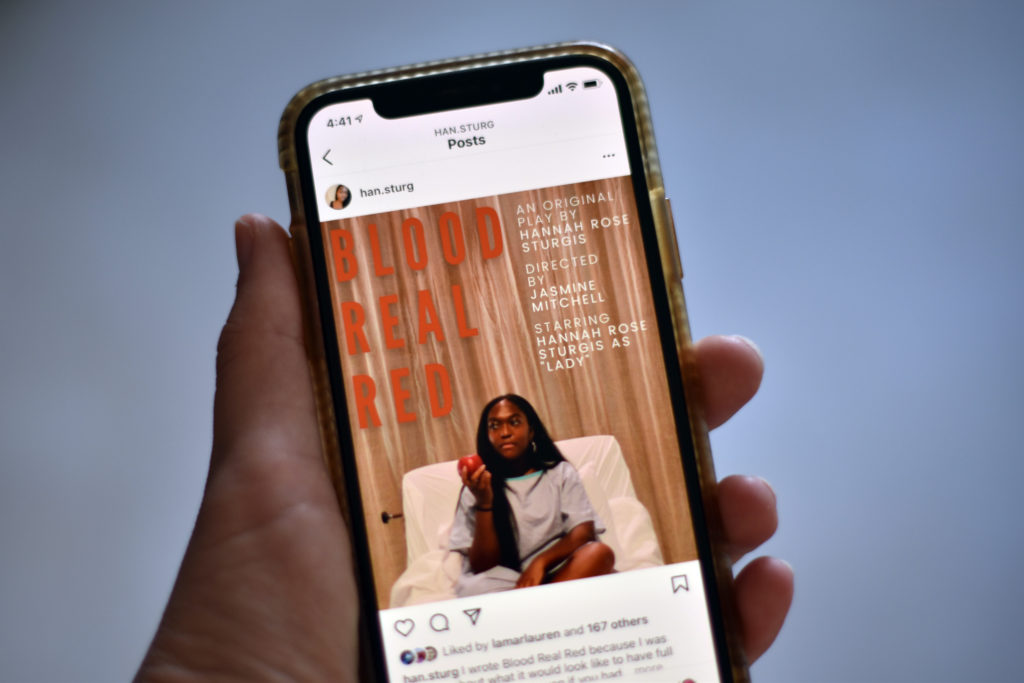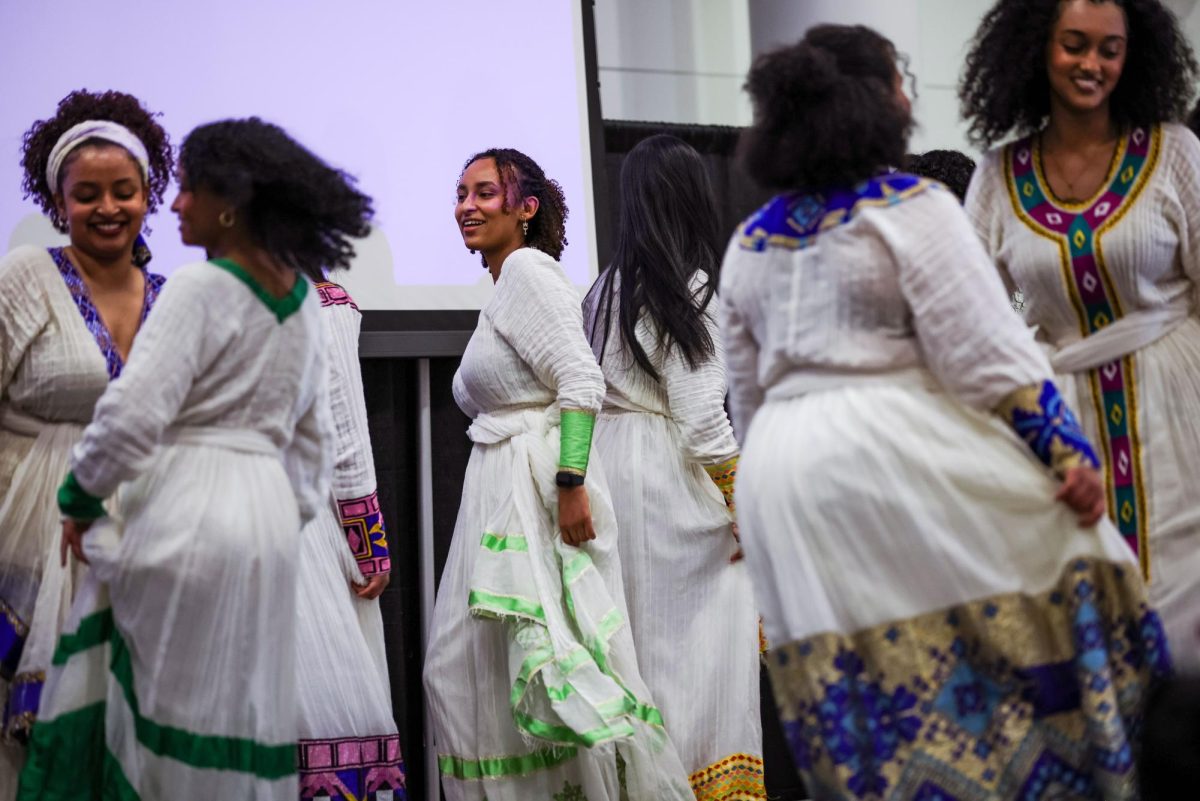Racism in doctor-patient relationships takes center stage in one theatre student’s senior thesis film.
Hannah Rose Sturgis, who double majored in theatre and journalism and mass communication, wrote, edited and starred in the one-woman film “Blood Real Red”, which is part of this year’s installment of NEXT, the Corcoran School of Art and Design’s annual display of seniors’ end-of-year projects. The film follows Lady, a young Black woman in Delaware, for more than a decade as she encounters doctors who discriminate against her because of her race.
“It’s about what happens when you aren’t seen fully and when someone tells you who you are before you’re able to determine that yourself and the harm that’s caused, especially on your body, when you aren’t heard and when you aren’t taken care of,” Sturgis said.
Sturgis said she had planned to perform her project live as a play but ended up making it into a film because of the pandemic.
Lady’s doctors ignore her pain, caused by an unspecified illness and play into hurtful stereotypes, like telling Lady she should use birth control at age 15 even after she made clear she was not sexually active. The film also explores intergenerational trauma, as Lady observes her mother expressing doubts about Lady’s doctors, having already gone through her own discriminatory experiences with physicians.
Sturgis said Lady initially internalizes the racism she faces to a point at which she becomes “numb” to it. She said Lady blames herself for inviting the stereotypes and discrimination the doctors wrongfully project onto her, like thinking her doctor was insistent that she go on birth control because she presented herself as too “slutty.”
Sturgis said Lady comes to understand the ways in which racism infiltrates her life, as the film shows Lady facing racism from both medical practitioners and in her daily life.
Sturgis said Lady’s character is loosely based on her own experiences, but she developed the character after reflecting on conversations she’s had throughout her life with friends and advice from medical professionals who are Black women. She said the issues of medical discrimination and racism is “constantly” on her mind, which led her to tell the story of a Black woman neglected by her doctors.
“I don’t think that we often enough really take the time to hear people when they’re telling us what they’re going through,” Sturgis said. “We always want to engage in a conversation, but sometimes it’s just better to listen.”
Sturgis said her personal experience with the medical industry has been “isolating,” and even though Black women can stick up for themselves in the doctor’s office, they are disproportionately called “aggressive” or said to be “over exaggerating” their pain. She said when she’s asked her doctors explanatory questions, she’s seen a “horrifying” lack of empathy from physicians who won’t respond to her and have made her cry.
“Hearing stories of my mother, all the women in my family and my friends, I think the consensus is, yeah, we don’t love it, going to doctors,” Sturgis said. “But if we don’t, there’s no other alternative. We have to be taken care of, even if it means arguing with the doctor every time I go in there.”
Sturgis said the film is very personal to her, not only because she drew on her own experiences while writing the play, but because she also stars in it. She said she learned from Sandra Davis, the assistant dean for diversity, equity and inclusion at the school of nursing, about how racism can affect people mentally to the point where they don’t always recognize racist incidents.
She said she was inspired by the works of Phoebe Waller-Bridge, who created, wrote and starred in the TV show “Fleabag,” and Michaela Coel, who created, wrote and starred in “Chewing Gum,” which Sturgis said had a big impact on her in high school.
Sturgis said she hopes viewers of the film will do what Lady’s doctors failed to — listen to her. She said she wants her audience to walk away from the film having “stepped” into someone else’s experiences and learned from them.
“I genuinely hope that you hear her out,” she said. “And I hope people are moved by it to figure out what can you do or what can you realize about your own microaggressions that you might put upon somebody else that really deeply affects them.”
Sturgis said if not for the pandemic, she would have performed the play live in the Flagg Building or Dorothy Betts Marvin Theater, where she spent much of her time during college as a theatre major. But as it became clear the play would need to be transitioned online, she said she instead had to film the play in a virtual space directed over Zoom.
She said performing in a virtual setting was difficult, but she used her understanding of how to run a play online that she gained after performing in a virtual production of Antigone with The Program of Theatre and Dance, which streamed online last fall due to the pandemic.
“Having to adjust my expectations really let me be like, ‘Okay, have no expectations and just start from the ground up, stop trying to imagine it in your mind and just do it the way that it is,’ which made me enjoy the experience a lot more,” she said.







